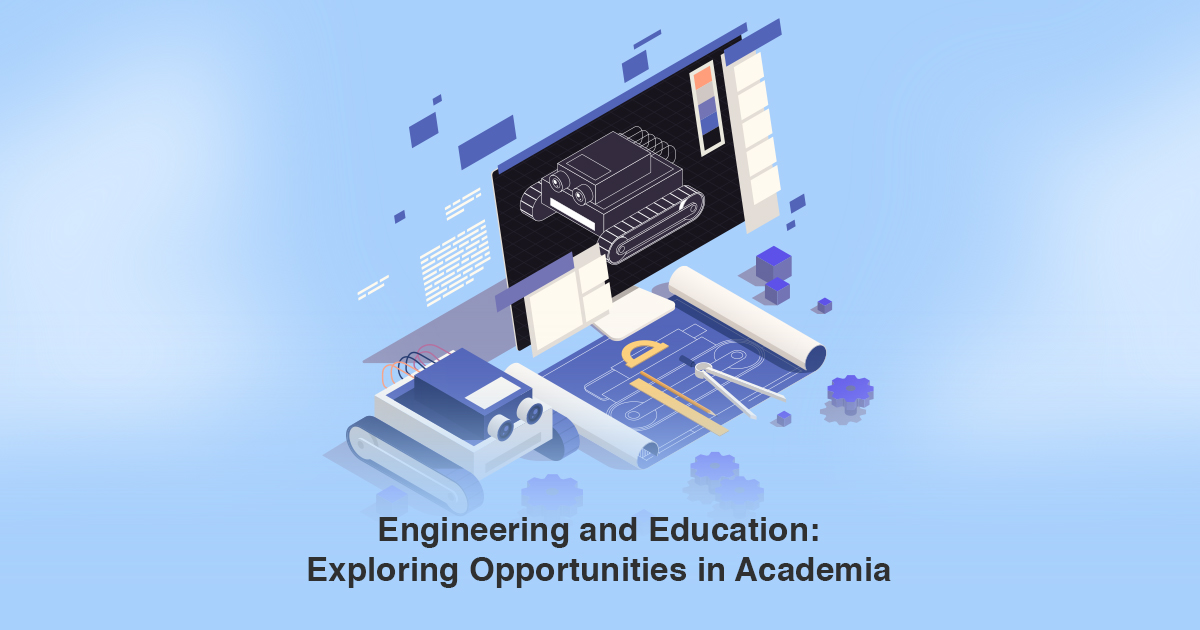Engineering and education intersect in fascinating ways, offering numerous opportunities in academia. Here’s an overview of how these fields interact and the potential avenues for exploration:
1. Teaching and Curriculum Development
- Engineering Education: You can focus on teaching engineering principles, theories, and practices at various educational levels, from high school to graduate school. Developing an innovative curriculum that incorporates the latest advancements and opportunities in engineering can be a significant contribution.
- Instructional Design: This involves creating educational materials and strategies that enhance learning experiences in engineering. This can include developing online courses, interactive simulations, and hands-on lab exercises.
2. Research in Engineering Education
- Pedagogical Research: Investigating how different teaching methods of the Btech colleges impacts student learning and engagement in engineering. This might include studying active learning techniques, collaborative learning, or the use of technology in the classroom.
- Assessment and Evaluation: Researching and developing methods to assess student understanding and skills effectively. This includes creating new assessment tools or improving existing ones to better measure learning outcomes in engineering.
3. Educational Technology
- Integration of Technology: Exploring how emerging technologies, such as virtual reality (VR), artificial intelligence (AI), and machine learning, can be used to enhance the opportunities in engineering This can include developing new tools or platforms that support experiential learning.
- Online Education: Developing and delivering online courses or massive open online courses (MOOCs) that make engineering education more accessible to a global audience.
4. Professional Development and Training
- Faculty Development: Designing and implementing professional development programs for engineering education to help them stay current with the latest teaching strategies and technologies.
- Industry Collaboration: Partnering with engineering firms and industry experts to provide real-world experience and training for students, ensuring that educational programs align with industry needs.
5. Policy and Advocacy
- Educational Policy: Contributing to the development of policies that impact engineering education at institutional, regional, or national levels. This could involve working with educational boards or government agencies.
- Advocacy for STEM Education: Promoting initiatives and programs that support STEM (Science, Technology, Engineering, and Mathematics) education, especially in underrepresented communities.
6. Community and Outreach
- K-12 Engagement: Developing outreach programs helps to inspire and prepare K-12 students for their careers and get opportunities in engineering. This might include creating workshops, mentoring programs, or school partnerships.
- Public Understanding of Engineering: Working on projects that help the general public understand the importance of engineering with Btech colleges and its impact on everyday life.
7. Interdisciplinary Collaboration
- Cross-Disciplinary Research: Engaging in research that intersects engineering with Btech Colleges, such as cognitive science, sociology, or economics, to explore how these disciplines influence engineering education and practice.
- Innovative Projects: Collaborating with other academic departments or institutions on projects that require both engineering and educational expertise.
Exploring these opportunities with JAIN Faculty of Engineering and Technology can lead to a rewarding career that not only advances the field of engineering but also enhances the quality and accessibility of education.




